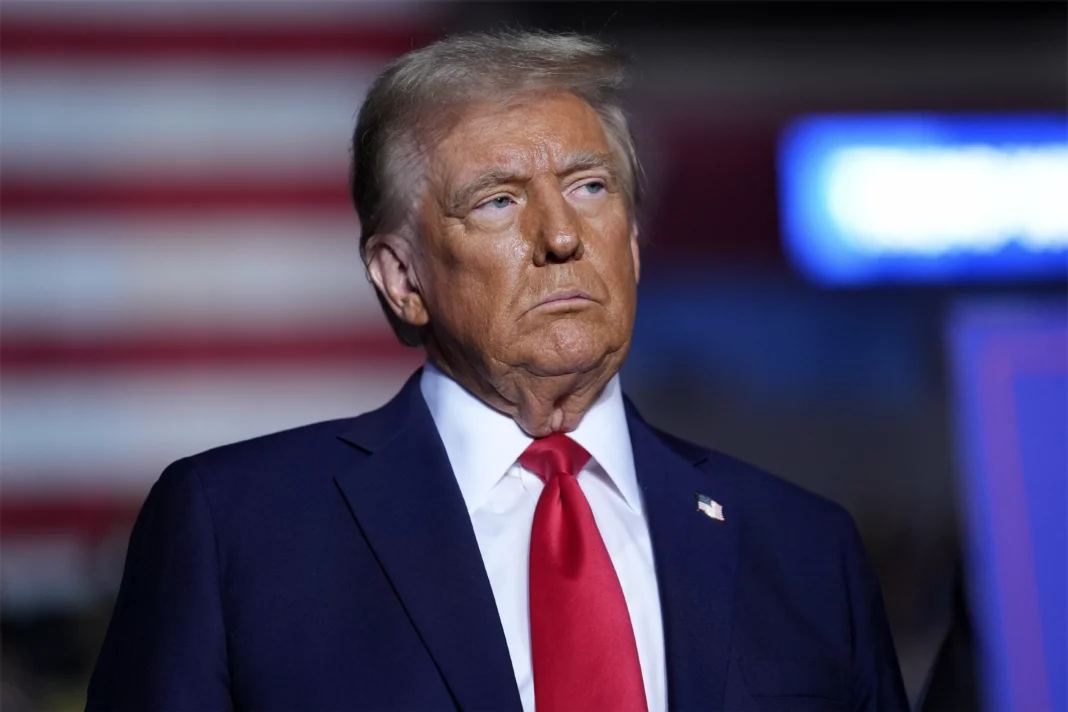As the United States prepares for the 2024 presidential election, tensions are high and the stakes are higher. Former President Donald Trump, who is now the Republican nominee, is once again in the spotlight as he goes head-to-head with Kamala Harris, the Democratic nominee. And as the world watches with bated breath, a recent poll suggests that a majority of Brits are concerned about the potential for violence if Trump does not win.
According to a survey conducted by YouGov, almost two-thirds of Brits believe that violence is likely to erupt across the US if Trump does not get re-elected. This alarming statistic highlights the intense polarization and divisiveness in US politics, which has only been exacerbated by Trump’s controversial presidency.
As US voters head to the ballot box today, the race between Trump and Harris remains too close to call. The outcome of this election has significant implications not just for the US, but for the rest of the world as well. And it is this uncertainty and tension that has sparked fears of potential violence if Trump does not come out victorious.
Out of the Western European countries polled, Denmark appears to be the most concerned, with 73% of respondents thinking that clashes could break out if Trump loses. Germany came in second with 67%, followed by Sweden (64%), France (63%), and Spain (62%). The fact that a majority of Brits share these concerns only adds to the gravity of the situation.
But this is not to say that the entire Western European region shares these fears. In fact, fewer than half of the Italians polled (47%) think that violence is likely to occur, suggesting that the country is even less convinced of potential unrest than US respondents themselves (52%).
The concerns over potential violence stem from the events of January 6, 2021, when Trump supporters stormed the US Capitol in an act of attempted coup. The violence and chaos that ensued resulted in the assault of over 140 police officers. Yet, despite the overwhelming evidence of violence and lawlessness, Trump has refused to take responsibility or even acknowledge the severity of the situation.
In fact, Trump has repeatedly downplayed and dismissed the events of that day, going as far as to say that nothing wrong was done. He maintains that he only encouraged his supporters to march “peacefully and patriotically” to the Capitol, despite the clear calls for violence and his refusal to concede the election results.
Furthermore, Trump has already laid the groundwork for delegitimizing the election results should he not come out as the winner. He has falsely claimed that the only way Kamala Harris can win is by “cheating,” setting the stage for potential unrest and violence in the event of his loss.
When asked about the potential for violence surrounding this election, Trump has given conflicting answers. He first assured journalists that there would be no violence and that he is confident in a “big victory.” However, when pressed further, he hesitated, stating that “it depends” on the outcome of the election.
These conflicting statements only serve to further stoke fears and uncertainty, further fueling concerns over potential violence if Trump does not win. It is a highly concerning situation that highlights the deep divisions and animosity that exist within American society.
As the rest of the world looks on, hoping for a peaceful and fair election, it is crucial that all involved parties, including Trump, make a concerted effort to ensure the safety and security of not just Americans, but people across the globe. It is time to put aside personal agendas and prioritize the well-being of society as a whole.
In conclusion, the possibility of violence surrounding the US presidential election is a grave concern, not just for Americans, but for the rest of the world as well. As we await the outcome of this pivotal election, it is important for all parties to maintain a calm and rational approach, and to work towards a peaceful resolution, regardless of the results. The fate of the nation and its people rests on this election, and it is crucial that we handle it with the utmost sensitivity, responsibility, and respect.



